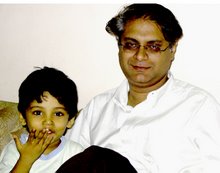HR in Startups (KPO's /BPO's/Consulting)–Some Reflections
In the last couple of years there has been quite an upswing of start up firms in India. In my circle of friends and former colleagues there are quite a few people who have left their cushy jobs and ventured out on their own to set up businesses in consulting , BPO and KPO spaces . The common thread that runs across all these businesses are that they are people centric and capitalize only on the intellectual prowess of their workforce .As you would expect that these start ups have their own HR organizations and have been able to attract competent HR professionals. However my firm belief is that People issues in these circumstances need to be viewed and managed fundamentally differently than in a mature set up
The objective of this post is to highlight some of the cornerstones of people management for start ups in the BPO/KPO or consulting space. People costs (salary, bonus, variable pay, espos etc) is the most significant operating cost for these organizations and hence the role of the HR Manager is needs to be somewhat similar to a Supply Chain manager . A HR Manager needs to build a strategy based on maximum value deliverance to the businesses for the people costs it incurs. This idea struck me when my school mate Judhajit Das Sr VP-HR of ICICI Prudential Life Insurance spoke about managing people costs in his organization in a lecture that he delivered to HR professionals. Reflecting on Jit's idea ,it became amply clear that HR is probably not doing justice to the business objectives that it ought to serve.
Subsequently I met a few HR Heads of such organizations and my suspicion became an initial hypothesis, it seems that we are managing HR as we would do in a normal and stable environment. We do the same old things, play around with the performance appraisal forms, write some training needs and then organize some training programs , get very busy during March-April for processing increments, promotions etc. Nothing wrong in any of these activities, but they are not the supply chain view of HR which I am trying to propagate. The supply chain view of HR in these cases would be an integrated set of systems and people processes which would feed into each other and derive maximum benefit from it , I am sure you will find this a bit abstract , but I will try and demystify the same .
My supply chain view of HR has the following set of assumptions
a) HR Processes are classified into two broad categories:
i.Operations – The set of processes which are need to be run efficiently at minimum costs , these processes are maintenance in nature and cannot be necessarily sharply co-related to business results (ex-payroll , benefits administration , some basic employee engagement processes, …)
ii.Developmental –these processes are ones which are critical to the supply chain and the quality and rigor of these processes determine the business value of HR . Developmental Hr processes are –performance management , talent identification , rewards strategy etc
An HR manager needs to quickly set the operations processes in place and then ensure that these are run optimally , once these processes are set up the HR Manager does not need to spend any more time or energy in these activities .
The Development processes need to be designed and implemented with a plan. My quick research shows that most HR managers do not have a clear plan or a framework of setting up these processes and hence their energy and focus gets diverted into multiple processes and therefore none of these are ever institutionalized. I don’t have ready answers or a framework as yet (thought I am working at one and people who are interested may contact me offline to discuss the same ) , but the following steps could act as a guideline
Before one gets into the design of such processes one needs to be very clear that each one of these need to stabilize before launching the other . In other words if the storage or warehousing systems are not great then its likely that the supply chain costs will go up due to pilferage and losses which will be difficult to make up even by efficient distribution systems
I would urge HR Managers to keep the following steps in mind (these are sequential in nature and I believe the maximum value is derived when the sequence is followed) while setting up developmental processes
a)Articulate the People Management Philosophy (How do we want to treat our people assets ? , do we reward for outcomes or efforts ? Do we reward innovation or are we happy with compliance ?…)
b)Define a recruitment strategy (where to get people from and how to get them at the most optimal cost )
c) Define the Performance Ethics and Philosophy
d) Design an appraisal methodology
e) Define the Rewards philosophy and the mechanics of performance differentiation
After establishing steps 1 and 2 , define competencies for the roles (both behavioral and functional)
f)Align the competency framework with career movements and progressions
g) Focus the Training plans on the competency framework and use a robust Instructional Design methodology to derive maximum benefit from training
Caution – These steps are incomplete and it is meant only for start ups in the first two years of its operations, the belief is that if these steps are followed in the way its recommended it creates a base from which the other processes can be build . This framework is not intended to be of any use to Hr Managers who operate in stable environments.


2 comments:
Is a guidance for us for sure!
This post is really vey informative and helpful to all.
Keep posting with more new information....
Regards,
kpo services
Post a Comment